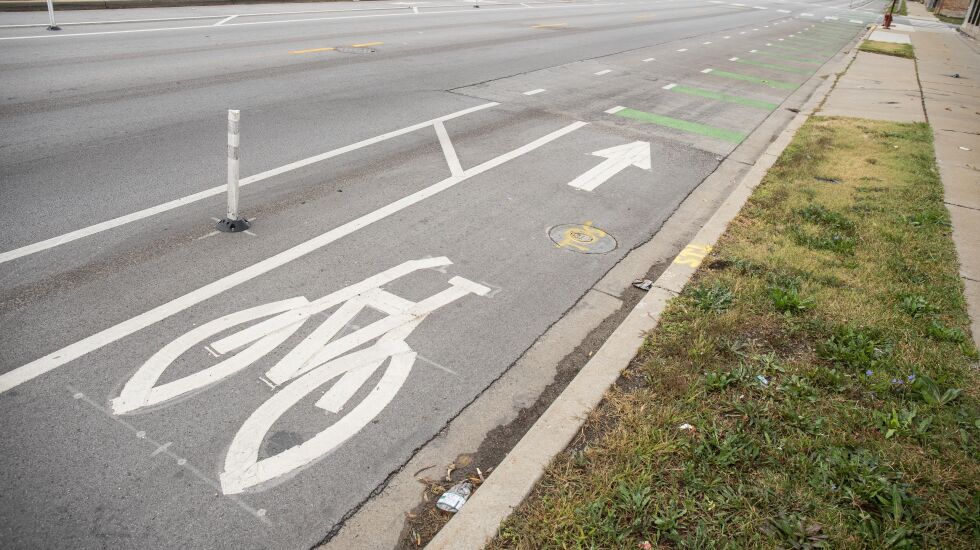
Rafi Cardenas was mowed down by an SUV in a pedestrian crosswalk while riding his scooter in Lincoln Square last June.
On Friday, his father, Henry Cardenas, pleaded with Chicago City Council members to do what they could to prevent another motorist driving recklessly from killing another pedestrian.
When his 2-year-old son was hit, Cardenas said, Rafi “was wearing his bright turquoise blue scooter and wearing his bright turquoise blue helmet. He was hit ... two blocks north of the public library, where we were headed. He was hit … while taking the same route we had taken on a weekly basis throughout his life. How could this happen? Could this have been avoided?” Henry Cardenas asked.
“My son was still hit only a few feet away from that child crossing sign. ... If we solely rely on drivers to make decisions on the road, we are going to continue to hear harrowing stories from broken families. … We need infrastructure that prioritizes pedestrians over the convenience of drivers. We are dying much too young and often for us to consider this anything but a requirement. ... Please do not allow Rafi’s death to have been in vain.”
The City Council’s Committee on Pedestrian and Traffic Safety responded to Cardenas’ anguished plea by advancing a pair of ordinances intended to make Chicago streets safer for pedestrians and cyclists after a wave of fatalities and injuries.
One ordinance, championed by Ald. Matt Martin (47th) in response to Rafi’s death, would require the Chicago Department of Transportation to “prioritize and incorporate” bike and pedestrian and mass transit improvements whenever arterial streets are resurfaced.

The second, backed by lame-duck Mayor Lori Lightfoot, would dramatically expand video surveillance and automated ticketing in Chicago.
Lightfoot’s ordinance calls for creating a pair of two-year pilot programs that use cameras to nail wayward motorists and technology to enforce loading zone fees. Both zones would stretch from Lake Michigan to Ashland Avenue and North Avenue to Roosevelt Road.
One program would authorize the city to ticket registered vehicle owners by mail for parking in bike lanes, bus lanes, crosswalks and bus stops. The other would use “license plate-reading camera technology” to more efficiently ticket drivers or companies who double-park or park too long in commercial loading zones.
“The meter starts ticking digitally once you roll into that space, with billing digitally [and] seamlessly through the license plate. Rates for this would be set by the comptroller,” CDOT Deputy Vig Krishnamurthy told alderpersons.
“This is a really new tool in terms of pricing and using space, reducing the friction of having to take out an app and pay or go feed a meter, hopefully decreasing vehicle idling … as well as getting deliveries to take place in these zones rather than inappropriately in other areas not intended for loading and unloading.”
Before the first tickets are issued, there would be extensive marketing, new signs and a 30-day warning period. Parking meters “will not be enforced through the pilot,” Krishnamurthy said.
Cameras mounted on the exterior of CTA buses and other public transit vehicles, city vehicles and light poles will be used to record offenses. Every offending motorist would get one warning notice before being ticketed.
Ald. Daniel LaSpata (1st) acknowledged some will believe the pilot area is too small while others will call it “another revenue grab” by the city.
“I would love for this to generate no money for the city. Please, please, let us turn around two years from now and say, ‘We didn’t gain a dime from this because residents and businesses did exactly what they should — which is simply not parking in bike and bus lanes,” LaSpata said.
“Safety is built on three things: education, infrastructure and enforcement. We will continue working on all of those, but that is going to include enforcement.”







